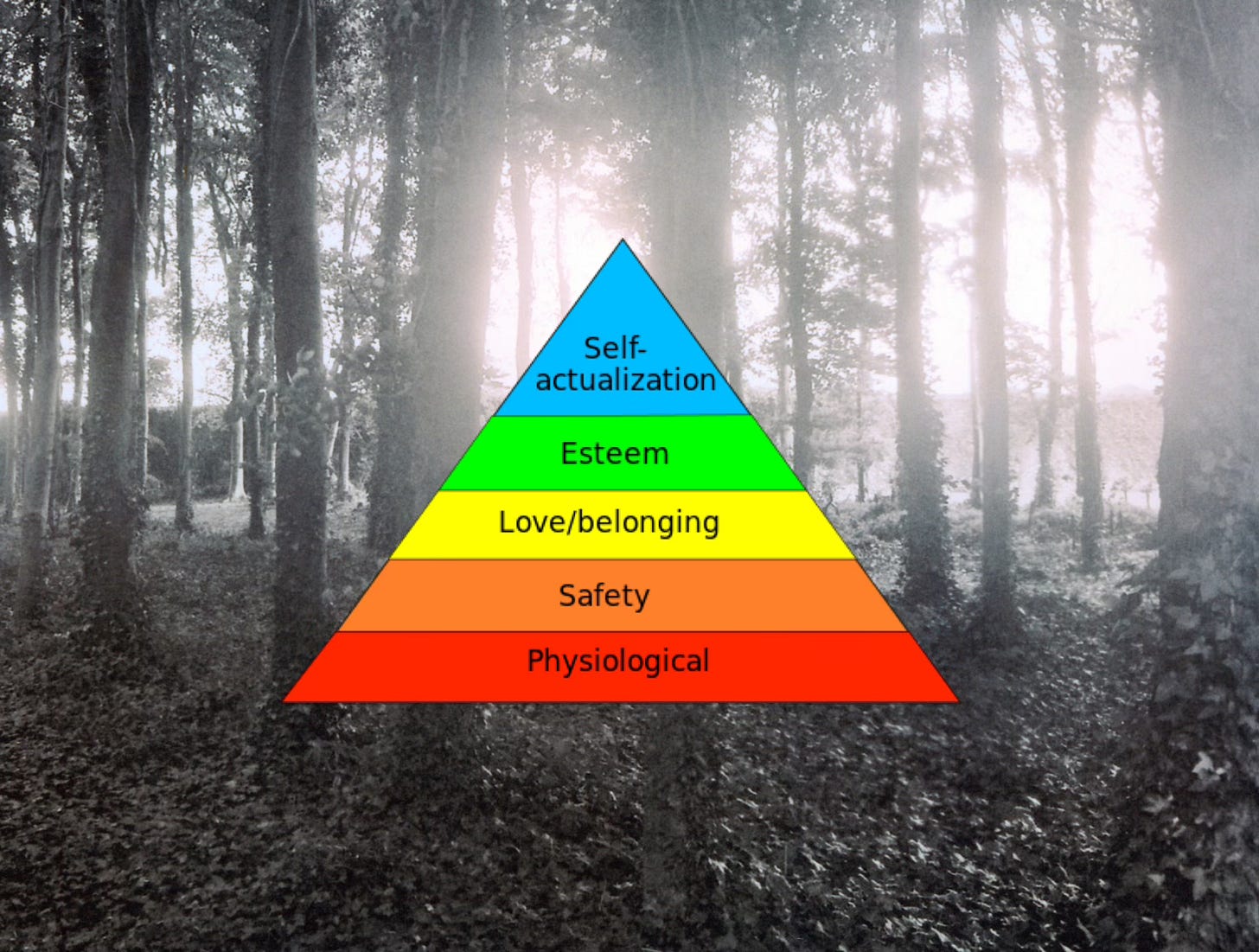I argued with my dad about this over dinner, in the context of Harry Kane's missed penalty in Qatar and GS's reaction (to comfort HK). He thinks leadership should be about telling people in no uncertain terms they've fallen short, and that all this 'unconditional love' stuff is fashionable nonsense.
I disagreed and wasn't able to articulate why. It's been going round in my head in the intervening weeks. Now I'm clear. It's because it’s not either/or. We need both.
I see this as pure Maslow (from that fashionable decade....the 1950s):
Being held to high standards so we can have feelings of succeeding = esteem
Being loved unconditionally = belonging
Although Maslow never drew his hierarchy as a pyramid, its useful image because it points to the way we benefit from a solid foundation. First we need to know that, whether we do well or badly, we will not be abandoned; and if that is true it can actually be easier for us to take bigger risks, to push ourselves further, do be achieve more. (Same patterns in Lencioni's 5 Dysfunctions model, or work on psychological safety).
This is pretty central to my view of high performing organisations. Trust and relationships are key, but on their own they don’t amount to much (from a business point of view). You also need skill, you also need problem solving. These two are necessary complements of each other.

